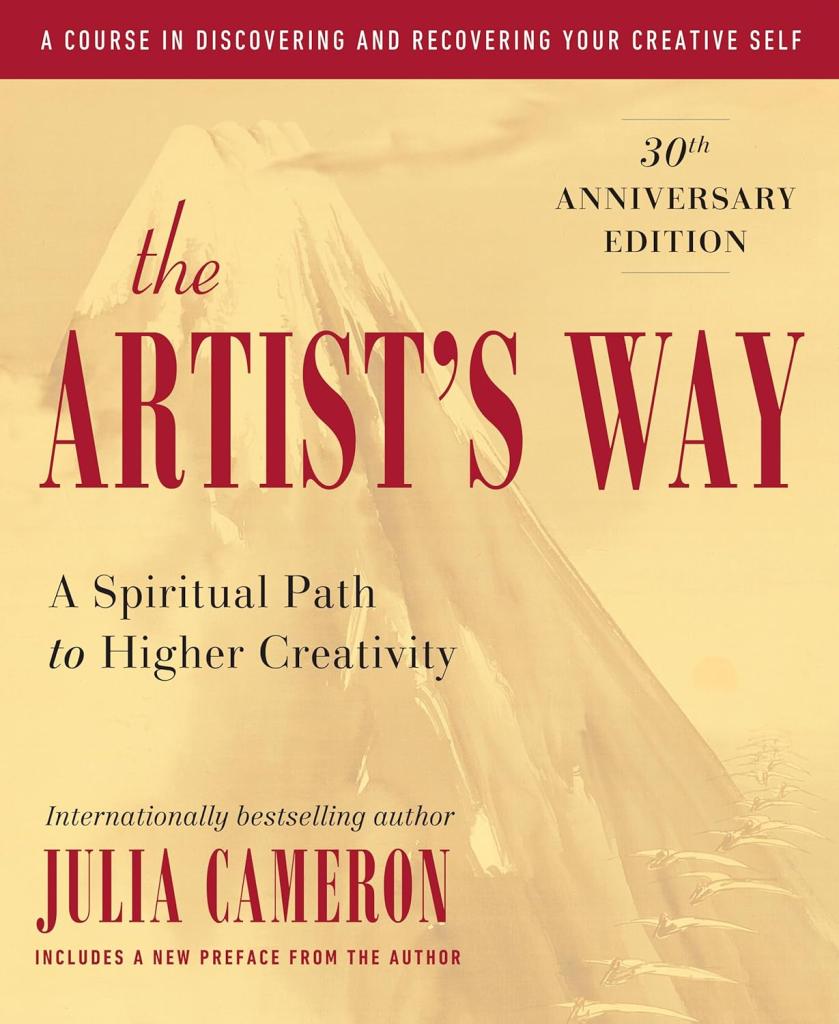Struggling to maintain self-awareness in love? Learn 5 essential techniques to preserve your individuality in a relationship.
The Truth About Love and Identity
You are not your relationship. This simple truth often gets lost when two people fall in love. In 2025, a study by the American Psychological Association found that 67% of couples struggle to keep their individual identities after being together for more than two years.
The signs start small. You skip your weekly art class because your partner wants to spend more time together. Your running shoes gather dust. Your friends start texting less because you’re always busy with “couple activities.” Before you know it, you’re part of a “we” but have lost sight of “me.”
Here’s what nobody tells you: Strong relationships don’t require sacrificing who you are. The strongest couples maintain clear boundaries between their shared life and personal space. They understand that love shouldn’t mean losing yourself.
This isn’t about choosing between your relationship and your identity. It’s about enhancing both. When you preserve your individuality, you bring more to your partnership. You become a better partner because you’re a complete person, not just half of a couple.
I’ve spent years studying relationship dynamics as a clinical psychologist. The patterns are clear: Couples who maintain their individual identities report higher satisfaction levels and longer-lasting relationships. They fight less, communicate better, and trust more deeply.
This guide will show you five practical ways to keep your identity while building a meaningful relationship. These aren’t just theories – they’re tested strategies that work in real relationships, right now.
Let’s look at how you can be both a loving partner and your own person.
Balancing Personal Space in Relationships

- Personal boundaries boost relationship health.
- Regular “me time” is key to maintaining individuality.
- Mutual space respect strengthens understanding and bond.
Define Your Personal Boundaries
Clarifying personal boundaries forms the backbone of maintaining individuality in relationships. Start by having an open conversation with your partner about what personal space means to you. Be direct and clear. Personal space isn’t about creating distance but about fostering mutual respect and understanding. Discuss your preferences for alone time or particular activities that help you recharge. This dialogue not only informs your partner of your needs but also helps avoid potential misunderstandings or conflicts.
🪄 A 2021 survey found that 78% of individuals felt improved communication and reduced conflict after delineating clearer personal and mutual boundaries.
Personal boundaries enhance relationships by laying the groundwork for mutual respect. They allow each partner to express their needs clearly. If personal space is defined correctly, it can prevent issues like codependency by promoting a balance of togetherness and independence. The goal is to create an environment where both partners feel valued and understood.
Schedule Regular “Me Time”
Allocating time each week solely for yourself is crucial. This period, often referred to as “me time,” is non-negotiable. Schedule it like you would a meeting at work. During this time, engage in hobbies or activities you enjoyed before the relationship. Whether it’s reading, hiking, or painting, immersing yourself in activities that define you is key to maintaining your sense of self.
Through regular “me time,” you reaffirm your identity. It’s proven that taking time for oneself helps maintain a sense of individuality. Moreover, this practice can reduce stress and increase happiness. It ensures you’re not just existing within the relationship but thriving as an independent individual.
Consider Global Changes in Personal Space
The pandemic has reshaped how we perceive personal space. The increase in personal space needs in countries like Algeria, which saw a 126% rise, or Austria with 110%, has highlighted the importance of respecting individual boundaries. Understanding that these needs can vary greatly even among close relationships is vital expanding personal space global insights.
Respect Your Partner’s Space as Well
Recognizing and acknowledging that your partner also needs personal space is important. When partners respect each other’s space, it leads to a relationship marked by mutual understanding and support. Encourage your partner to pursue their interests, just as you do. Their hobbies, passions, or even quiet evenings spent alone are crucial for their mental well-being.
🪄 Research from the American Psychological Association suggests that couples who actively discuss and implement personal boundaries report higher relationship satisfaction levels.
Respecting your partner’s personal space can also prevent unnecessary conflicts. Giving each other room to breathe allows both individuals to process emotions more effectively, leading to less friction. Encouraging a culture of mutual respect fosters harmony and strengthens the relationship bond over time.
Practical Steps You Can Take
Consider setting up designated areas for personal activities within your home. This could be a reading corner or a space dedicated to hobbies. Additionally, communicate the need for alone time openly and honestly to avoid misunderstandings. Research shows that creating these dedicated spaces helps manage alone time and respects each other’s boundaries effectively.
Importance of Self-Identity in Partnerships

- Knowing who you are strengthens your sense of self in a relationship.
- Openly talk about your individuality with your partner.
- Having personal goals outside the relationship keeps you balanced.
Self-Reflection
Delve into your core beliefs and aspirations. Take time out to think about what makes you who you are. Reflect on your past achievements and where life has taken you. Reflecting helps to clarify what you want to remain true to, even when you’re part of a couple. Journaling can be an effective tool. Through journaling, you can track how your goals and values align with your life and your relationship. Set aside regular time to jot down your evolving thoughts.
Be aware that relationships may prompt you to change. Yet, the goal is not to lose your core self. Use your reflections as a guidepost. Recognize areas where you can adapt, but also spots where you should stay firm in maintaining your identity. This ongoing self-reflection supports not just individual growth but also strengthens the partnership. A robust self-identity enhances how you connect with your partner.
Communication with Your Partner
Communicate clearly about your individual needs. This means more than just a casual chat. Take time to express what aspects of yourself you consider non-negotiable. Whether it’s pursuing a hobby or maintaining a friend circle, communicate what fuels your individual growth.
Boundaries are a big part of this conversation. Define what is necessary for maintaining your identity. This is not a one-time chat. Regularly revisit these discussions as life evolves. Healthy communication fosters mutual respect and helps your partner be more aware of your individual desires. As Carl R. Rogers reminds us, “We cannot change, we cannot move away from what we are, until we thoroughly accept what we are.”
Set Personal Goals
Create distinct goals separate from your shared objectives. Want to climb a mountain or complete a course? Set those targets. Pursuing these objectives keeps your individuality intact. They offer something solely yours to focus on, freeing you from relationship pressures.
🪄 Studies show that 70% of people feel clearer about their identity after defining individual and relationship goals.
It’s important to weave these personal goals into the fabric of your relationship. If learning a new language is your aim, dedicate specific times weekly to this pursuit. Your partner’s acknowledgment can foster encouragement rather than competition. Resist merging all aspirations into a relationship-driven agenda. Balancing personal ambitions with relationship milestones enriches both spheres.
Do You Lose Individuality in a Relationship?
It’s common to feel like you’re losing yourself in a relationship. This often stems from immersing too deeply into what the partnership demands. Relationships necessitate compromise, but without boundaries, there’s a risk of self erosion. The concept of self-identity is more than a personal journey. Self-identity is shaped by the roles and social identity involved, and this dynamic can dramatically change within close partnerships.
Research from a U.S. study on Self-Identity and Relationships shows that strong partnerships can reinforce self-identity through self-verification and the exchange of support. The result is not a loss of self but rather enhancement. It’s critical to recognize these dynamics to maintain a balance. The trick is reconciling your identity and the shared experiences together.
Practices to Strengthen Self-Identity
Strengthen your identity by engaging in individual activities. Actively participate in hobbies or interests where you’re not defined by your couple status. Activities such as painting, writing, or solo sports can help you revisit your intrinsic passions.
Also, foster professional interests separately from your relationship focus. Your career goals and aspirations can provide a separate platform for self-exploration. Attend professional workshops or networking events. They can offer fresh perspectives and insights that might also enrich your personal life.
To deepen your knowledge, diving into literature on self-growth can expand your understanding. For further reading on maintaining individuality in relationships, consider books like “Mating in Captivity” by Esther Perel. This book explores how retaining individuality can enhance the erotic and emotional bonds in partnerships. Continue exploring educational resources to broaden your grasp of maintaining self-identity in any relationship context.
Navigating Independence in Love

- Balancing love with independence keeps you connected yet whole.
- Solo time enriches relationships by creating more shared topics.
- Supporting individual pursuits strengthens the bond.
Maintain Separate Friend Circles
Building and keeping separate friend groups can help maintain who you are. Here’s how:
- Identify Your Circle: Determine which friends you enjoy outside of your partner. List them. Reach out more often. Plan meet-ups. This fosters friendships without your partner.
- Schedule Time: Make plans with your friends. A lunch, coffee meet-up, or evening out works. Commit to spending time with them regularly, suggesting bi-weekly or monthly catch-ups.
- Communicate Openly: Talk with your partner about these friendships. Let them know the importance. This prevents any misunderstandings about your separate social life. Keep things honest and promote trust.
Boost Independence with Social Activities
Spending time socially apart strengthens your individual lives:
- Social Calendar: Mark dates for friend meet-ups on your calendar. Avoid having these irregular. Aim for regular schedules.
- Explore Interests: Join new groups or clubs that pique your interest. This is your time to grow. Discuss these new experiences with your friends, expanding personal knowledge.
Embrace Solo Experiences
Independent experiences contribute immensely to your individuality:
- Plan Solo Activities: Arrange solo pursuits like hiking or visiting a museum. Do this monthly at minimum. It leaves you with stories and personal experiences to share later.
- Travel Alone: Consider a solo trip, even a day trip. It builds self-confidence. Takes charge of all the planning from booking to going around. You’ll learn new things and develop new viewpoints.
Commit to Personal Growth
Ensure regular solo experiences shape your growth:
- Set a Routine: Dedicate time monthly to an event or activity just for you. Avoid skipping these. These are essential for nurturing personal growth.
- Evaluate Regularly: Check in on your solo activities. Reflect on new things learned. Share insights with your partner. This way, these experiences enhance personal understanding.
Encourage Partner’s Independence
Supporting your partner’s independence is equally crucial:
- Discuss Activities: Talk with your partner about their pursuits. Encourage involvement. Show sincere interest in their activities and plans.
- Celebrate Achievements: Acknowledge accomplishments your partner achieves alone. This boosts confidence and fosters mutual respect. It can be as simple as acknowledging their dedication or joining in celebrations for larger milestones.
When partners independently grow, the relationship benefits, too. As Stan Tatkin said,
“Interdependence is a mutually beneficial system in which partners are equals.”
Embracing and respecting each other’s independence brings balance and strength to the relationship.
1 Tip to Maintain Individuality in a Relationship
“How do you maintain a sense of individuality while also nurturing your relationship? What balance have you found works best for you?” Here is what 1 thought leader has to say.
- Carve Out Personal Time
Carve Out Personal Time
Maintaining individuality while nurturing a relationship is something I’ve learned to navigate through trial and error. Early on, I realized that it’s essential to carve out personal time, whether it’s for my business, hobbies, or just quiet moments of reflection.
I always set aside time on weekends to focus on my cooking and strength training routines. Things that keep me grounded and fulfilled outside of my professional and personal relationships. At the same time, I make sure to prioritize quality time with my partner, whether it’s hosting a movie night or simply spending time talking after a long day.
The key balance for me has been open communication about our individual needs and setting boundaries that allow for both independence and connection. For instance, we both respect each other’s personal space and interests, but we also make sure to support one another’s goals and celebrate wins together.
This blend of personal freedom and mutual support has created a healthy balance that strengthens both my relationship and my sense of self.

Aseem Jha, Founder, Legal Consulting Pro
Advanced Tips for Cultivating Personal Growth Together
- Joint learning helps both of you grow as individuals.
- Recognize and prevent common traps that hinder growth.
- Benefits of maintaining hobbies and recognizing boundaries.
Learn Together, Grow Apart
Collaborative learning can add value by letting partners explore new interests together and separately. Taking classes or workshops is a great way to engage in shared activities that respect both partners’ personal growth.
These educational spaces can range from art classes to coding workshops, catering to varying skill levels. It’s about finding balance. Each partner should have the chance to shine and learn something unique.
For deeper engagement, consider courses that offer advanced learning pathways. For instance, attending a skillshare class together but selecting different modules can provide shared experiences while fostering individual growth. This approach ensures that you don’t just grow as a couple but as individuals, too.
There are numerous resources to help choose suitable learning paths. I’ll share some of my favorites with you here.
Books like “The Artist’s Way: A Spiritual Path to Higher Creativity” by Julia Cameron and course recommendations from Coursera offer structured guidance. Encourage intentional learning.

It’s not just about gaining new skills but understanding how these skills can independently enrich your life and the relationship.
Common Pitfalls and How to Avoid Them
Over-dependence is a common issue in relationships. It can stall personal growth if left unchecked. Reinforcing personal hobbies is crucial. Engaging with activities that define you outside of the relationship helps maintain a strong sense of self. This could range from joining a local sports team to pursuing academic interests. Personal hobbies give you space to breathe and offer variety in your shared experiences.
Maintaining personal boundaries is vital. Relationship discussions often neglect the importance of these boundaries. Ensuring they are respected promotes health and individuality. Use tools like personal reflection logs to keep these boundaries in check. This avoids the subtle erosion of individuality and ensures that each partner remains a fully realized person.
Stay aware of your own needs and those of your partner. Remember, boundaries aren’t restrictions but bridges to a healthier relationship.
Books like “Boundaries: When to Say Yes, How to Say No to Take Control of Your Life” by Dr. Henry Cloud can offer further insight.

Develop Independent Skills Through Goals
Setting personal goals is about long-term growth rather than immediate success. These goals should align with your individual interests and not solely the partnership’s objectives. As highlighted in “Atomic Habits” by James Clear, small changes can lead to substantial results over time. This is equally applicable to personal goals within a relationship context.
Personal goals might range from language acquisition to solo business ventures. These tasks build individual competence and boost self-reliance. By prioritizing personal milestones, you gain clarity on personal values. This introspection often translates to better relationship dynamics.
Having shared check-ins helps align your partner’s understanding of your journey, avoiding surprises and creating shared excitement. Podcasts such as “The Tim Ferriss Show” often explore how achieving personal success can enhance relationships. These help cement the understanding that individuality complements the collective relationship.
Value of Curiosity in Joint Exploration
Encouraging curiosity within the relationship can lead to unexpected but pleasant surprises. Stimulate curiosity through joint exploration of different art forms, scientific advancements, or cultural phenomena. This nurtures a spirit of inquiry and keeps the relationship dynamic.
Books like “The Power of Now” by Eckhart Tolle can provoke thought and discussion. Curiosity in partners pushes boundaries. It’s about encouraging questions and not having all the answers immediately. Delving into various interests together and independently not only cultivates a broader worldview but also finds the beauty in everyday interactions.
Look to TED Talks and similar platforms for engaging new ideas and insights. These foster a culture of learning and questioning in relationships. The journey of discovery shared by partners, while rooted in personal exploration, leads to collective growth.
Encourage Adaptability and Flexibility
Adaptability is about being open to changes—whether it’s switching career paths or moving to a new city. Personal growth in relationships often demands active adaptability. This doesn’t mean sacrificing personal goals for the relationship but embracing change when beneficial opportunities arise.
Reading materials on adapting to change include “Who Moved My Cheese” by Spencer Johnson. They emphasize seeing change as an opportunity, not a setback. Engaging with such literature can provide strategies for resilience, invaluable for both personal growth and relationship dynamics.
Encouraging flexibility also means supporting each other’s ventures, allowing both partners to pursue altered paths without fear of disrupting the relationship. Engage in forums and workshops focused on career and lifestyle adaptability for practical insights and real-world applications.
Cultivating Personal Growth Together

- Share growth stories to strengthen your bond.
- Balance personal and shared goals for mutual support.
- Regular updates on growth foster understanding.
Share Personal Growth Stories
Talking about personal growth stories is essential for any relationship. It creates a safe space for partners to share what they have individually learned. These exchanges are important for fostering connection and empathy.
- Schedule Regular Check-ins: Set a specific time each week or month to discuss individual progress. Use a calendar or digital reminder to keep these meetings regular.
- Select a Comfortable Setting: Choose a relaxed environment where both feel at ease. This could be during a walk, over coffee, or a quiet evening at home.
- Encourage Openness: Start each session with an invitation to share what you have learned or experienced individually. Use open-ended questions such as, “What new skill have you developed recently?” or “What’s something you’ve been reflecting on?”
- Reflect Together: After sharing, help each other see how this personal growth can enhance the relationship. Ask questions like “How can this new insight improve our communication?” or “In what ways can this make our time together more meaningful?”
 Reflecting Together
Reflecting Together - Mindful Listening: Pay full attention without interrupting. Use non-verbal cues like nodding or maintaining eye contact to show engagement.
- Compose Responses Thoughtfully: Feedback should be supportive, focusing on how personal developments contribute positively to the relationship. Use expressions like “That’s impressive. How do you think we can incorporate this in our shared activities?”
When you regularly engage in these conversations, both partners can apply what they learn to nurture their connection.
Benefits of Sharing Stories
Frequent story-sharing can deepen mutual respect and understanding. Studies have shown that people are more committed to goals when shared with someone they admire source. This practice helps people better support each other in their pursuits, blending personal growth with relationship development.
Develop Shared Goals Alongside Personal Goals
Balancing your personal goals with shared ones demands careful planning. It’s crucial to respect each other’s personal priorities while forging common objectives. Here’s how:
- Start with Personal Goal Lists: Write down individual goals. Discuss what each partner hopes to achieve personally. This could be advancing a career, learning a new language, or improving health.
- Identify Common Interests: Look for overlaps in personal goals to form shared ones. For instance, if both aim to improve fitness, a shared goal might be to train for a marathon together.
- Set Concrete Objectives: Define specific, actionable steps for each shared goal. For the fitness example, agree to a regular workout schedule or join a local running club.
- Create a Balanced Plan: Use a planner or digital tool to track both personal and shared goals. Make sure to allocate time and resources effectively between them.
- Revisit and Adjust Goals: Set monthly or quarterly reviews to assess progress. Discuss what’s working and what isn’t, and make necessary changes to maintain balance.
- Celebrate Achievements: Recognize and celebrate milestones, whether personal or shared. This encourages continued effort and strengthens your partnership.
By developing shared goals that exist alongside individual aims, you’ll reinforce personal growth while also enhancing relationship dynamics. Aligning these goals allows each partner to pursue personal aspirations without compromising their collective path.
Following these steps fosters a supportive environment where individuality is respected, and personal growth is encouraged within the relationship.
Troubleshooting Common Issues

- Enhance relationship satisfaction by solving common issues.
- Strengthen individuality through clear communication and boundaries.
- Protect your sense of self without distancing from your partner.
Solutions to Potential Problems
Effective communication is essential in any relationship. When feelings of neglect arise, it’s usually due to a lack of communication. Here’s how to address this:
- Schedule Regular Talks: Pick a day weekly. Discuss anything bothering you. Keeping it consistent helps.
- Use Clear Language: Avoid hinting. Say exactly what you feel. This avoids misunderstandings.
- Create a Listening Space: Each gets uninterrupted time to speak. If you’re both talking, no one is listening; “The biggest communication problem is we do not listen to understand. We listen to reply.” by Stephen R. Covey shows this link.
- Encourage Openness: Make it safe to share anything. If there’s fear, communication blocks.
- Check Non-Verbal Cues: Body language gives away more than words. Watch out for signs of discomfort.
Regular communication reduces negative feelings. Partners feel heard and valued.
Addressing Boundaries
Boundaries determine how you interact with your partner. They should feel comfortable and healthy. Here’s how you can reevaluate:
- Identify Stress Points: Are there moments when you feel overwhelmed? Note them.
- Discuss Them Transparently: Explain these stressors to your partner. Use calm and non-judgmental language.
- Start Small Adjustments: Suggest little changes. For instance, a day reserved for solo activities if that’s missing.
- Set Consequences, Respectfully: Make clear what happens if boundaries aren’t respected. Done nicely, it doesn’t harm the relationship.
- Revisit Regularly: Life evolves; so should boundaries. Reassess every few months.
When you reinforce boundaries, you maintain your individuality while fostering mutual respect. This keeps partnerships thriving.
Further Resources and Reading

- Read books and articles to balance individuality and connection.
- Engage with podcasts on growth through relationships.
- Individuality boosts relationship health and satisfaction.
Books and Articles Worth Reading
Books are treasures when seeking knowledge on individuality in relationships. “Attached” by Amir Levine and Rachel Heller explores attachment theory, offering insights into how personal drives influence relationships. “Daring to Love” by Tamsen Firestone provides a path to self-awareness and growth, crucial for maintaining independence in love. Their teachings bridge self-identity with shared life.
Podcasts also offer deep discussions on individuality and growth. “On Being” dives into human experiences, focusing on identities and relationships. Listening to these can be enlightening for those pursuing personal growth while tethering to a partner.
Reading articles on individuality explores nuances in relationships. One source is “Preserving Individuality to Strengthen Your Relationship“. It stresses being honest and respecting your partner’s uniqueness. These resources collectively emphasize that nurturing individuality within relationships can foster stronger connections.
Why Preserving Individuality Matters
The positive impact of individuality on relationships is profound. When partners maintain their identity, they often experience increased satisfaction. A study on relationship satisfaction by Joel et al. noted specific relationship elements were more predictive of satisfaction than personal traits. However, individual characteristics like life satisfaction were strongly tied to relationship happiness.
Real-life examples show how the power of individuality bolsters relationships. Take a case where a couple encourages personal passions without reservation. Such openness not only boosts self-esteem but also increases relationship fulfillment. As they pursue individual goals, they embrace mutual growth, transforming relationship challenges into shared learning moments.
Supporting this, a study on social connections underlines the importance of individuality. Warm relationships can lead to longer, happier lives. Those findings spotlight the crucial balance between being together and staying unique in partnerships.
Conclusion
Keeping your individual identity while being in a relationship takes work, but it’s worth the effort. Strong relationships grow from two whole people coming together, not from two halves trying to make a whole. The steps we discussed – from setting boundaries to maintaining separate friendships – help create this balance.
Remember that asking for personal space isn’t selfish; it’s essential for your mental health and relationship quality. When both partners understand and respect each other’s need for individuality, the relationship becomes stronger. Think of it as taking care of yourself so you can be present and engaged when you’re together.
Start small. Pick one area where you’d like more independence. Maybe it’s joining a class alone or spending an evening with friends. Talk to your partner about it. Be clear about your needs while staying open to their perspective.
The goal isn’t to live separate lives but to build a connection where both people can grow individually and together. Your unique traits, interests, and dreams matter. They’re what made your partner fall for you in the first place. Keep nurturing them.
Take action today. Choose one of the five strategies and implement it this week. Your relationship – and your sense of self – will be better for it.
Leave a Reply